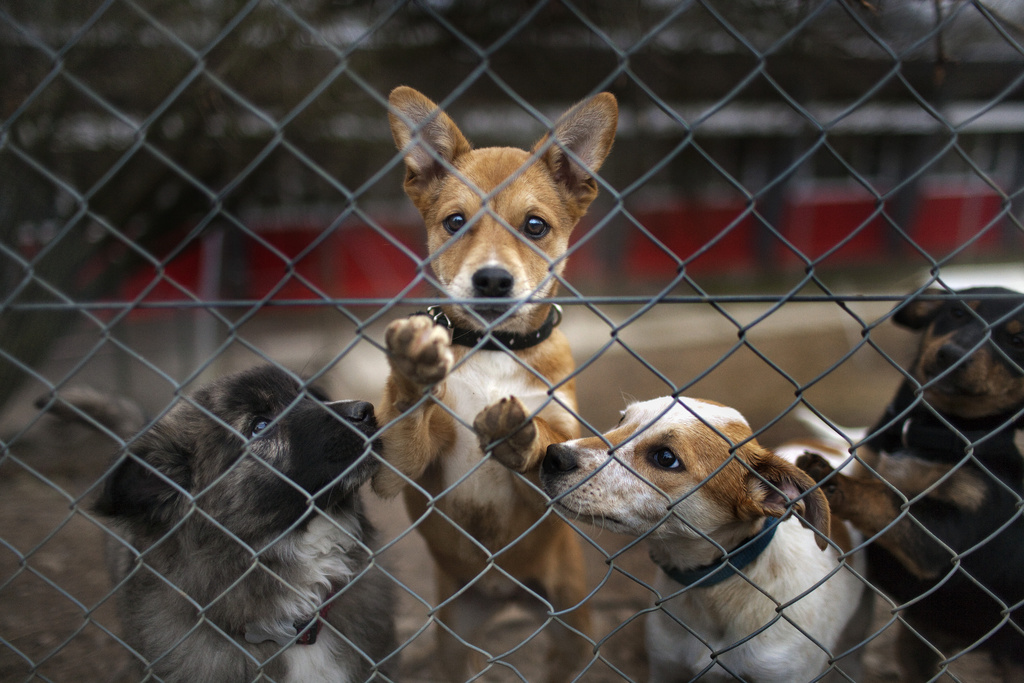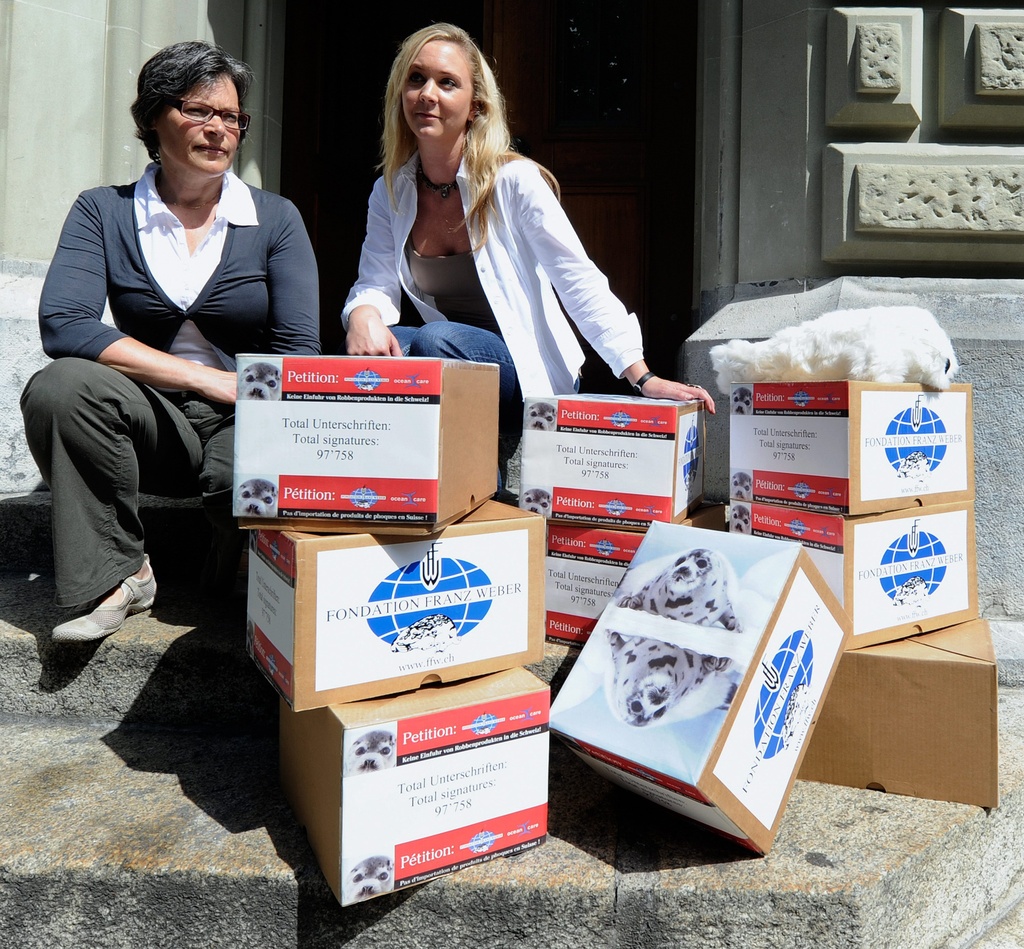150 years in the service of animals

Swiss Animal Protection (SAP) started in 1861 and since then has achieved many successes, including law changes, its president, Heinz Lienhard, tells swissinfo.ch.
In 2010 the organisation’s 70 sections across the country looked after 27,463 animals in their shelters, 13 per cent more than the previous year.
Lienhard says the rise comes because of changes in society and the fact that fewer and fewer people are aware of the challenges of caring for animals.
SAP, the largest organisation of its kind in Switzerland, was until 1980 the Swiss Central Association for Animal Protection. It celebrates its foundation in August.
swissinfo.ch: What are the three most important objectives achieved by SAP over the past 150 years?
Heinz Lienhard: I don’t need to go back that far. For us the main event has been the entry into force in 1981 of the law on the protection of animals, which at the time was the most stringent worldwide. After that many countries made progress in this area and over time the law lost some of its avant-garde nature. The total revision of 2005 was a second crucial point because we managed to get some of our important demands accepted.
The third episode goes back to 2003 when – thanks to our “animals are not things” initiative, which we later withdrew – the government and parliament decided to add into the law that domestic animals should be considered as living, feeling beings.
swissinfo.ch: What were the important demands accepted in the revision of 2005?
H.L.: There was marked progress, especially for large animals – for example, concerning time spent in transport or the ban on operations without anaesthetic like cutting horns. For domestic animals I’d like to point out the ban on keeping social animals, such as parrots or guinea pigs, alone.
But we didn’t manage to get improvements for laboratory or wild animals.
swissinfo.ch: Often farmers complain that they can’t do their work because of too strict animal protection laws. What do you say to that?
H.L.: Agriculture is the only sector of our economy which every year receives SFr2.7 billion ($3.3 billion) in direct payments. The farming lobby forgets this aspect all too easily and is always complaining that there are too many controls, that they are too severe, etc. But when you receive such a big sum, I believe that you have to accept framework conditions.
swissinfo.ch: Animal protection is a topic close to Swiss hearts. A survey found that 20 per cent of respondents gave money regularly to help animals – a similar percentage to that for world hunger or development aid. Are you not troubled by the Swiss often being more generous to animals than to humans?
H.L.: It’s more than legitimate to ask the question whether it’s normal to help animals when there are still so many people suffering. The only right answer is that we have to help both.
Personally – but I think this goes for all those working in animal protection – I think it’s absolutely correct and necessary to help human beings in need, for example after natural disasters. But this should not stop us from helping animals as well.
swissinfo.ch: In 2010 there was a rise in animals at SAP shelters. Some have pointed the finger at society’s increasing “use and throw away” mentality. Do you agree?
H.L.: Not entirely. I believe that it comes first and foremost from developments in society, which is becoming ever more based on technology and distant from nature. People, especially children, increasingly want to keep animals and there is a rise in their numbers. But more animals means more protection problems.
Another, more secondary aspect is that people are becoming less aware of what it means to look after an animal. There are laws to respect, costs and, above all, you need to be prepared to give time.
swissinfo.ch: There are now many smaller animal protection organisations. Are these complementary or a problem?
H.L.: In recent years they have been popping up like mushrooms. One problematic aspect is that some of these groups import dogs from eastern and southern countries, especially from Spain, selling them on and telling people that they have saved the dogs from being put down. It’s therefore more difficult for our shelters to find people ready to take dogs.
These little organisations are, above all, competition. The problem is that 99 per cent of them are dedicated exclusively to cats and dogs. Our sections, on the other hand, give assistance to many other animals, from hedgehogs to wild birds. It’s obviously much easier to get donations for a cute little kitten than for a sparrow.
1861: Pastor Philipp Heinrich Wolff invited 12 people from seven cantons on August 18 to an “assembly for delegates of Swiss animal protection and agriculture associations”. This is considered the origin of the national movement.
1864: First publication of an animal protection magazine, which has been known since 1975 as Schweizer Tierschutz, Du + die Natur” (Swiss animal protection, you + nature).
1893: Voters accept a people’s initiative banning ritual animal slaughter, an initiative supported by the SAP.
1895: Zurich voters reject the first people’s initiative against vivisection.
1973: Animal protection is inscribed into article 80 of the Swiss constitution.
1978: Voters accept the law on the protection of animals; law comes into force in 1981.
1993: People’s initiative on abolishing animal experiments rejected.
2000: Launch of the “animals are not things” initiative, withdrawn 3 years alter after parliament accepted a modification of the law on the legal status of domestic animals.
2005: Total revision of the law on the protection of animals.
2010: People’s initiative by SAP on employing an animals’ lawyer is rejected.
2011: Motion to ban the shooting of feral cats rejected, despite a petition with 13,700 signatures.
(Translated from Italian by Isobel Leybold-Johnson)

In compliance with the JTI standards
More: SWI swissinfo.ch certified by the Journalism Trust Initiative














You can find an overview of ongoing debates with our journalists here . Please join us!
If you want to start a conversation about a topic raised in this article or want to report factual errors, email us at english@swissinfo.ch.